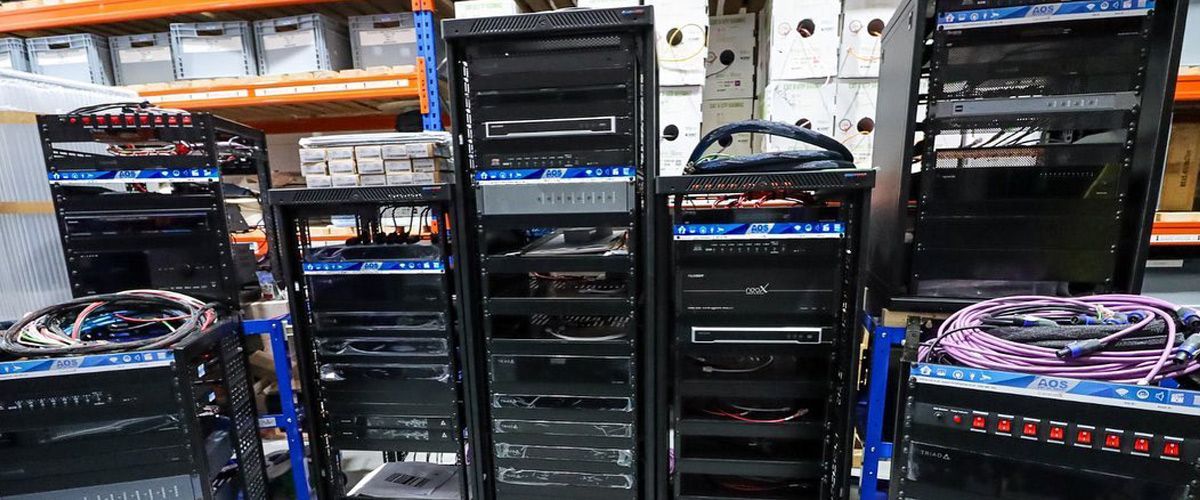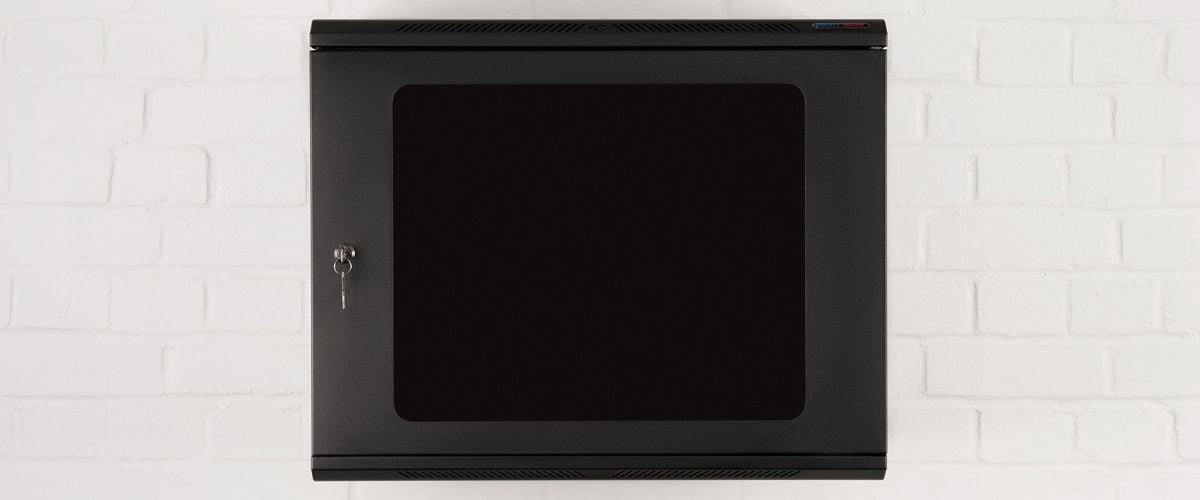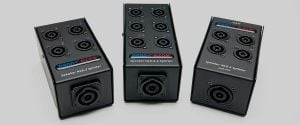Nothing’s more frustrating than a bundle of disorganized cables overtaking your AV and server rack system. It can be hard to manage and maintain, and looks unsightly too. But there are many different rack cable management options designed to allow for neat and tidy cable arrangements, minimizing clutter and maximizing organization for easy equipment maintenance and installation. Not sure what the best cable management is for you? Here is a breakdown of the different types available…


Bars and Rings
A cable lacing bar has multiple slots where cables can be tied using cable ties which helps prevent tangling and enhances airflow. If you need more space, you can get a bar with adjustable depth. A cable tie bar is versatile as it can be fitted to any standard 19” rack panel. The mounting bracket sit in between a rack panel and rack rail, which allows normal rack panels to be converted for cable management.
Similar to lacing bars, panels with rings for cable management help organize and secure multiple cables. They guide cables along a designated path, making it easier to manage and access connections while reducing trip hazards and wear on the cables.


Cable Trays and Ducts
These help to route and support cables. A plastic cable tray is a lightweight cable management system that is cost-effective and a robust PVC alternative to traditional metal. Plastic cable trays are great for fitting to racks of various sizes on the fly.
A cable management slotted duct with cover is a great solution to cross-patch wiring looms. The cover allows for easy access, and is an ideal solution for residential and commercial locations.


Tie Strips and Cable Ties
Tie strips are another versatile option for organizing and securing your cables within a 19” rack. They are very durable, and you can easily adjust the tightness for a secure fit without causing damage to cables. They’re easy to use and extremely cost effective, with a large variety of strips, nylon cable ties, and long cable ties in a range of colors and materials such as plastic, Velcro, self-adhesive and felt.
When choosing your cable management solution, keep in mind the location of your rack server and how it is accessed. You want to determine the ideal place for mounting your 19” rack cable management, whether that’s in the rack itself or a wall and whether you need a vertical or horizontal system. Do your cables need to be sealed to reduce dust and debris? If so, you may want to consider a cable access slot with brushes. Just remember, when deciding on cable management, the ultimate goal is to optimize organization and efficiency with your rack server system.













